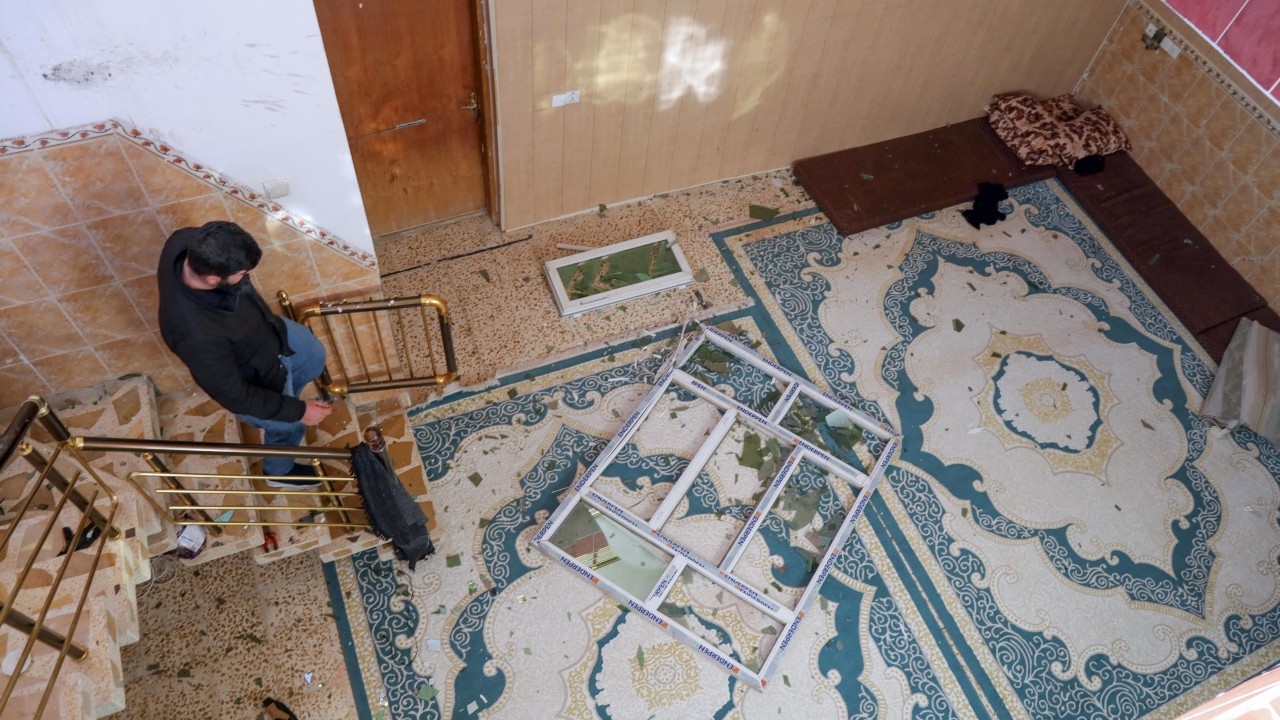Iraq: Baghdad recalls Iran ambassador after deadly attacks in Kurdistan region

Baghdad recalled its ambassador from Iran on Tuesday after its eastern neighbour launched missiles into Iraq's northern Kurdistan region, leaving at least four people dead.
The Islamic Revolutionary Guard Corps (IRGC) launched the strikes on Monday claiming it was targeting Israeli “espionage centres” in the city of Erbil, adding that it also hit other targets linked to the Islamic State group in northern Syria.
The attacks come amid fears of escalation in the region in the wake of Israel’s war on Gaza, which has seen Iran’s allied militias in Lebanon, Syria, and Iraq launch sporadic attacks, and Yemen's Houthi group target shipping in the Red Sea it says is linked to Israel.
In a statement, the IRCG said the attacks came as a reaction to “the recent atrocities of the Zionist regime, causing the killing of commanders of the Guards and the Axis of Resistance”.
The strikes, which took place late Monday, were intended to counter "terrorism" and protect the Islamic Republic, said Iranian foreign ministry spokesperson Nasser Kanani. He added that his country had the “legitimate and legal right to deter national security threats”.
Stay informed with MEE's newsletters
Sign up to get the latest alerts, insights and analysis, starting with Turkey Unpacked
At least four people were killed, and six others were wounded, according to the regional security council of Kurdistan.
"The Iraqi Ministry of Foreign Affairs summoned the Ambassador of the Republic of Iraq to Tehran, Mr Naseer Abdul Mohsen, for the purpose of consultations in the context of the recent Iranian attacks on Erbil, which resulted in a number of martyrs and wounded,” read a statement issued by Iraq’s foreign ministry and posted on X.
'Baseless' claims
In response to Monday's attacks, the prime minister of Iraq’s autonomous Kurdistan region, Masrour Barzani, accused Iran of killing civilians in his region, describing Tehran’s claims as “baseless”.
Speaking on the sidelines of the World Economic Forum (WEF) in Davos, Barzani added that “now was not the time for the US forces to withdraw from the country,” according to Reuters.
The UK and US have also denounced the Iranian attacks.
UK Foreign Secretary David Cameron described the attacks on X as "unprovoked and unjustified actions" saying that "they are an unacceptable violation of Iraq’s sovereignty and territorial integrity".
Matthew Miller, the spokesperson of the US State Department, said on X: “We strongly condemn Iran’s attacks in Erbil and offer condolences to the families of the victims", while the French government described it as "an attack on the security and stability of Iraq and the Kurdish region, which leads to an escalation of tensions in the region."
The Islamic Republic has struck the north of Iraq several times in recent years, most notably in November 2022 when it carried out attacks against Kurdish separatist groups which it blamed for fomenting anti-government protests in Iran.
Iran's attacks in Syria on Monday were an apparent response to a bombing claimed by IS in the city of Kerman earlier this month, which left at least 90 people dead.
Middle East Eye delivers independent and unrivalled coverage and analysis of the Middle East, North Africa and beyond. To learn more about republishing this content and the associated fees, please fill out this form. More about MEE can be found here.





